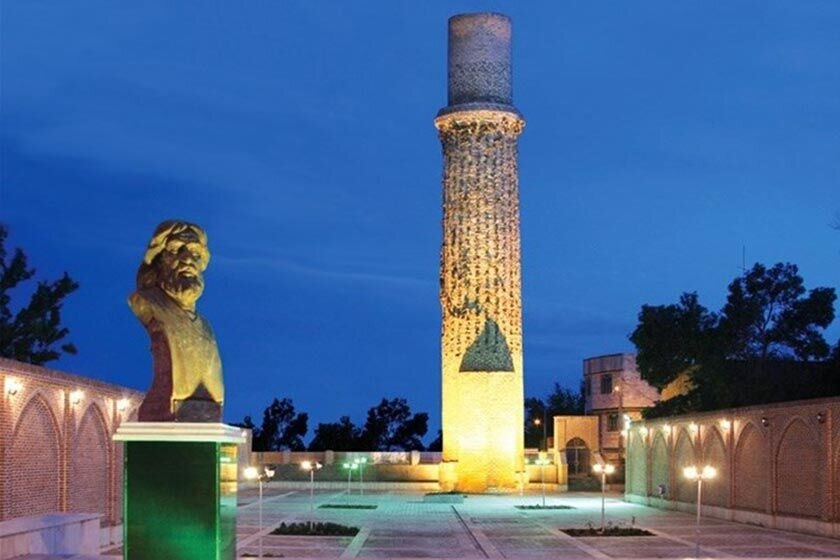Tilting minaret of Shams mausoleum comes under scrutiny

TEHRAN - Years of underground developments have contributed to the tilt of a brick minaret, which stands tall at the mausoleum of Shams-e Tabrizi, the celebrated Persian mystic who is credited as the spiritual instructor of Rumi.
The minaret stands tall in the northwestern Iranian city of Khoy in West Azarbaijan province, where the mystic was born and passed away in a span from 1185 to 1248.
The tilt is now being scrutinized firmly as its some-degree lean has given serious cause of concern to cultural heritage experts, the provincial tourism chief has said.
The tilt of the building has happened in recent years, and to prevent further damage and the possible risk of destruction, the edifice is being controlled and monitored regularly, Jalil Jabbari said on Sunday.
A panel of experts is also studying carefully to find a proper way for preserving the minaret, the official added.
He also noted that Shams-e Tabrizi cultural-historical complex is being constructed in an area of 3.5 hectares, with a budget of 200 billion rials ($4.7 million at the official exchange rate of 42,000 rials per dollar).
The minaret, named after the renowned Iranian poet and mystic who lived between 1185 and 1248, is one of the popular tourist attractions of Khoy. The centuries-old monument is somehow hidden in the maze of some alleys northeast of Qamsal Square.
The city is also a destination for lovers of Persian literature, who come visit the mausoleum of the 13th-century poet. Encircled with vast sunflower farms and snowcapped towering mountains, khoy has long been a destination for those who are interested in its virgin nature, genuine culture, and architecture.
The northwestern Iranian city is also filled with centuries-old mosques, churches, caravanserais, bathhouses, fortresses, and ramparts, each telling their tales.
Khoy may not be on every traveler’s radar, but it is a natural fit for eco-tourists as it offers loads of scenic hikes, panoramic views besides colorful geological features. Therapeutic warm-water spas, salt mines, and Christian centers are among its other charms.
ABU/AFM
